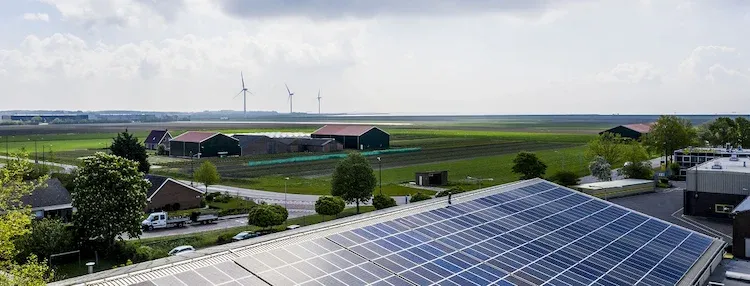Enterprises can once again apply for the Sustainable Energy Production and Climate Transition Incentives (SDE++) subsidy this year. In the 2024 application round, € 11.5 billion is available for energy generation and CO2 reduction by companies. That is € 3.5 billion more than last year. There are also some techniques coming up to do that. Projects with solar panels and onshore wind turbines will receive less subsidy from this year if the sale of power generates high profits.

Businesses and non-profit organizations can apply for this year's SDE++ from Sept. 10 at Rijksdienst voor Ondernemend Nederland (RVO). The application round closes again on Oct. 10. The budget for 2024 is €11.5 billion. This is what Minister Jetten of Climate and Energy writes in a parliamentary letter dated March 1, 2024. If entrepreneurs apply for the full budget and realize all projects, this is expected to yield CO2 savings of about 4.7 megatons in 2030.
High gains offset in solar panels and wind
The SDE++ provides subsidies to companies and non-profit organizations that generate renewable (sustainable) energy or reduce CO2 emissions on a large scale. Projects with solar panels and wind turbines on land that apply for the SDE++ in 2024 will receive less subsidy starting this year if the sale of power generates high profits for the company. RVO is going to set this off.
The minister emphasizes that offsetting high profits is mandatory because of European state aid rules. The high electricity prices of recent years are also a reason for this. Furthermore, the subsidy for the electricity consumed by the company itself will expire.
Apart budget for less profitable techniques
.Like last year, there is a separate budget for techniques that produce low-temperature heat, high-temperature heat and molecules (green gas and hydrogen). These techniques are less profitable now, but important in the long term for further sustainability. €1 billion has been set aside for each of these techniques.
More different techniques
.In the new application round, there will be a few more techniques for which entrepreneurs can apply for subsidies. These include:
- solar panels requiring a small roof modification;
- a separate category for heat from surface, waste or drinking water (aquathermy);
- a new category of heat pump for greenhouse horticulture;
- new categories for electrification of industry;